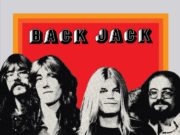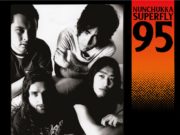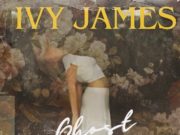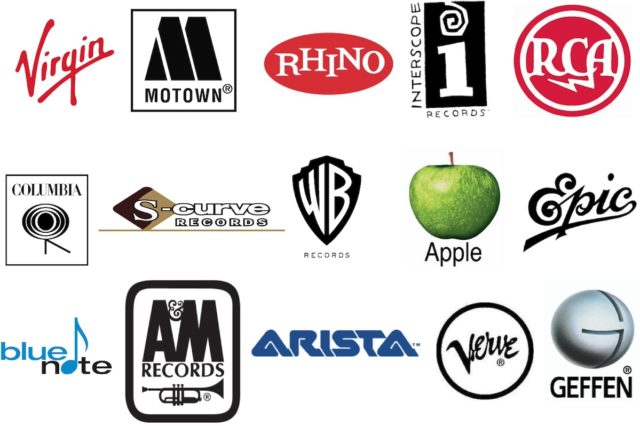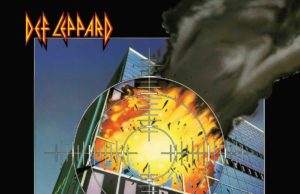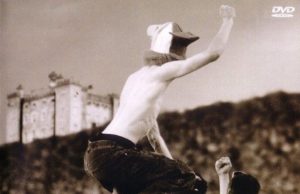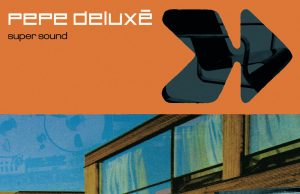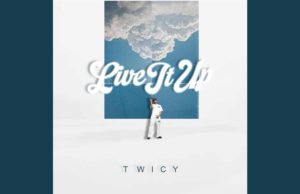 Next time Sticker Mule has a deal on T-shirt printing, I think I’m going to finally get one made honouring my favourite record label logo — Parrot Records. The label was a division of London Records, which itself was the main vehicle Decca used on which to issue its artists in the U.S. and Canada. Parrot was an American label which made lots of hay by licensing recordings of Tom Jones and Englebert Humperdinck. In my record collection, however, this is the label upon which many of my beloved early Savoy Brown records appeared. The logo was awesome, and I’m definitely getting a shirt made.
Next time Sticker Mule has a deal on T-shirt printing, I think I’m going to finally get one made honouring my favourite record label logo — Parrot Records. The label was a division of London Records, which itself was the main vehicle Decca used on which to issue its artists in the U.S. and Canada. Parrot was an American label which made lots of hay by licensing recordings of Tom Jones and Englebert Humperdinck. In my record collection, however, this is the label upon which many of my beloved early Savoy Brown records appeared. The logo was awesome, and I’m definitely getting a shirt made.
The coolest label, though, was Vertigo because the early versions of it only had writing on one side of the label. The other side featured a vertigo-inducing vortex (below) when the record was in-motion on your turntable. Vertigo, started in 1969, was British — a subsidiary of Phillips. Unlike Parrot, it’s still technically in existence as part of Universal Music Germany. It had the cool spiral vortex label until 1973, but some LPs have included it on their modern remastered re-releases. My copy of the Black Sabbath debut has this label. So too does my OG copy of 666 by Aphrodite’s Child and the first few Rod Stewart albums before he went to shit. Mostly it was a prog label, meant to compete with EMI’s Harvest label, which was home to Pink Floyd, The Move, Syd Barrett and Deep Purple. It still exists, as well — part of Universal.
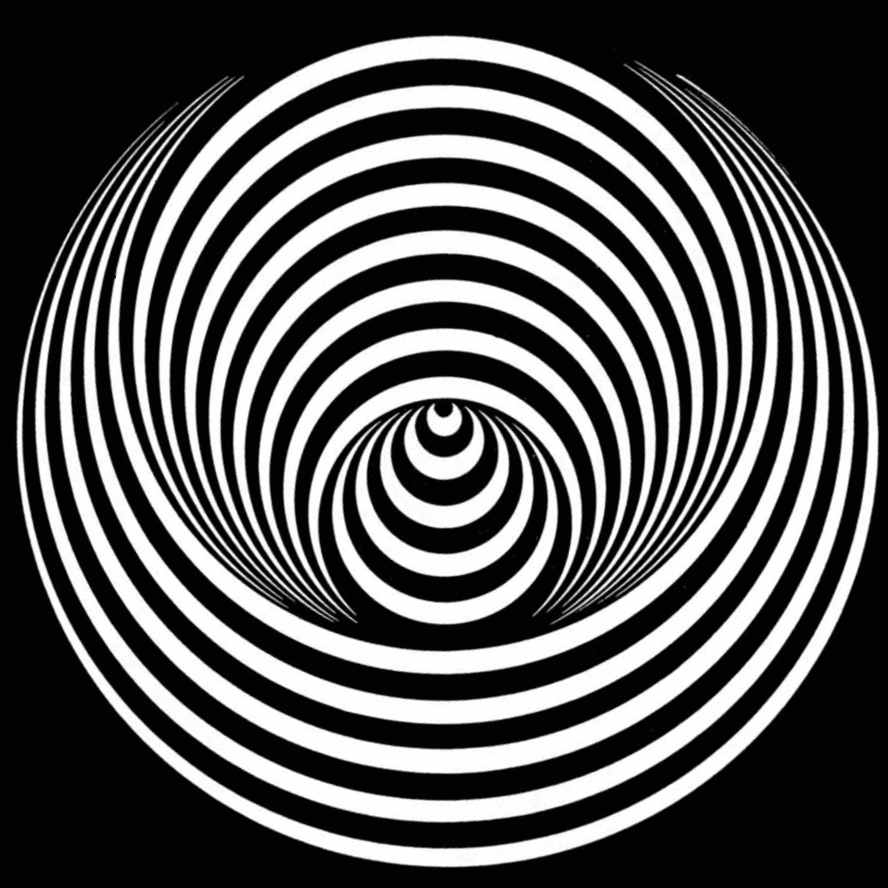
Label designs and record company logos were a bit of a fascination of mine when I was a kid, starting a record collection at age 7. I loved comparing them and seeing which of my favourite bands were on the same label. I developed an attachment to some of the designs — preferring Beatles and solo Beatles releases on Apple, rather than the ones on Capitol, which were more prevalent. I preferred the Elton John albums on UNI rather than MCA — if they had to be MCA, I preferred the black/white rainbow labels to the blue rainbow ones.
A&M records were usually pretty boring, but they came in nice plastic-lined paper sleeves, like my brother’s Styx and Supertramp albums. Sometimes they had labels patterned like the album art, but usually it was just the lame A&M logo.
There were all kinds — the original Asylum Records, created to distribute Jackson Browne, originally had that little wooden door thingy. The Elektra Records of my youth had a butterfly — visible on my Queen albums. I preferred the Warner Brothers labels with the image of Burbank, rather than the ones that just said Warner Brothers on them. I had lots of KISS records, and I always liked the Casablanca labels with either an image of Humphrey Bogart or KISS themselves on them.
The Chrysalis Records label (home of Jethro Tull) also had a butterfly, but it wasn’t as cool as the Elektra one. Capitol was pretty plain, but I prefer the red or yellow labels from the early ’70s rather than the ones showing the U.S. Capitol building. I liked the older Charisma labels which included the Mad Hatter. Of course, some bands had their own labels — The Rolling Stones had the tongue and beginning with Physical Graffiti, Led Zeppelin albums were on Swan Song (along with Bad Company and Pretty Things). The earlier Zeppelin albums on Atlantic were boring unless you managed to find one on the original dark red. I have a few amazing Aretha Franklin records with those, too.
But let’s not forget Columbia/CBS and its eyes. Most Columbia labels of my youth were dead-boring red labels with Columbia written around the edges. The previous era’s glossy red labels — known as two-eye — were cooler because they had symmetrical CBS “eye” logos on either side of the label. The really cool Columbia labels are the “six-eye” variety which have three symmetrical logos. I have a bunch of these, which I love. Dave Brubeck is definitely one of them. Can’t remember the others.
I thought I’d take a bit of a dive down the record label rabbit hole to find out what the big ones were over the years, and when they showed up. At the dawn of rock ’n’ roll, like the automotive industry’s Big Three, the recording industry had a Big Five: Columbia, RCA Victor, Decca, Capitol and Mercury. Here’s my ridiculous ADHD timeline…
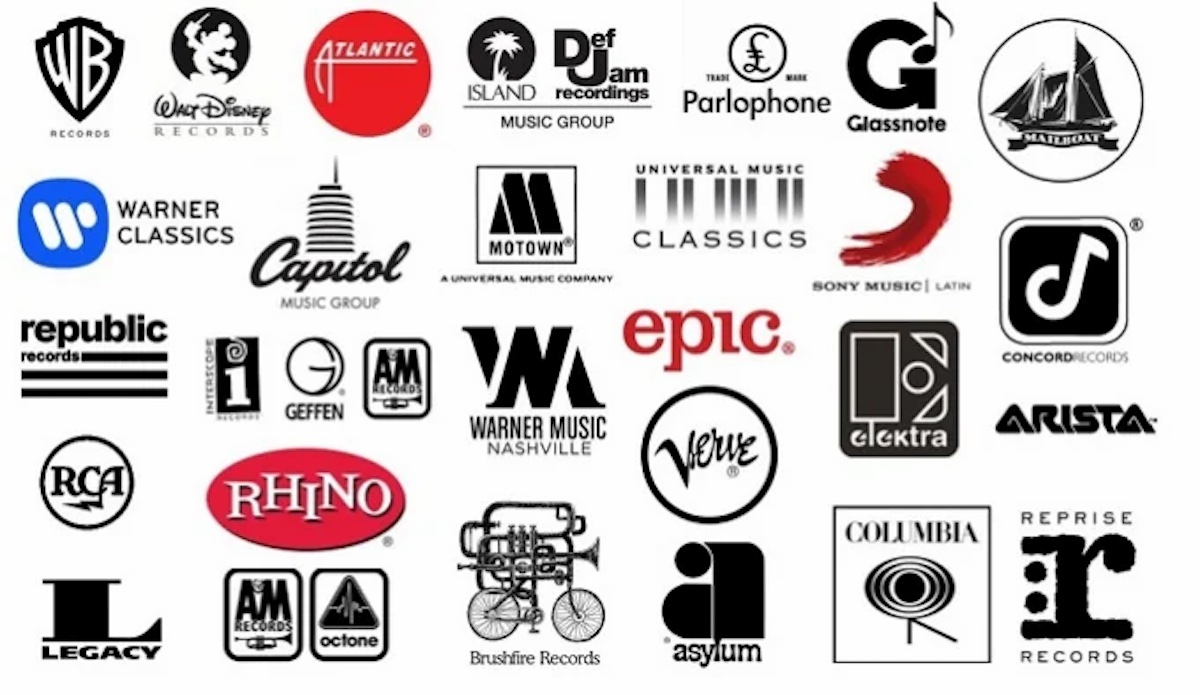
1889
• Columbia Records (CBS Records International. Now part of Sony. Evolved from the Volta Gramophone Co. and later the American Gramophone Co.)
1890
• Pathé Records (Founded by cafe-owning brothers Charles and Émile Pathé, the French company designed and sold their own phonographs and cylinder records. They got into disc records in 1905 but sold cylinders until 1914. Created spin-off discount label Perfect Records for dime stores. Columbia U.K. bought Pathé Records in 1928. The following year, the American assets of the company were merged into ARC Records. The Pathé Records label and catalog still exists, currently an imprint of Parlophone.)
1896
• Parlophone Records (Founded in germany as Parlophon. U.K. branch was formed in 1923, acquired by Columbia in 1926 and again by EMI in 1931.)
1913
• Polydor Records (German-British label which was purchased, along with Deutsche Grammophon by Siemens & Halske in 1941. Now part of Universal.)
1915
• Emerson Records (Founded by Columbia’s chief recording engineer Victor Hugo Emerson. Became defunct in 1928.)
1916
• Brunswick Records (Iowa company known officially as Brunswick-Balke-Collender Co. Only sold records in Canada.)
• Vocalion Records (Created by organ manufacturer Aeolian Co.)
1918
• Okeh Records (I always thought this cool jazz & blues label was a stylized version of OK, but it stands for its founder, Otto K.E. Heinemann. It became a subsidiary of Epic Records 1965, which is part of Sony.)
1921
• Cameo Records (Indie label from New York City which focused on dance music. Created subsidiaries Lincoln Records in 1924 and Romeo Records in 1926. Merged with Pathé Records in 1928 and then into ARC Records, which stopped using the Cameo name after that.)
1929
• RCA-Victor (Radio Corp. of America purchased Victor Talking Machine Co. in 1929. RCA still in use.)
• Decca Record Co. (U.S. arm started in 1934 and is now called MCA – Music Corporation of America, first founded in 1924 by Jules C. Stein. U.K. original label now part of Universal.)
• ARC Records (American Record Corp. was started by Scranton Button Co., which made — yes — buttons, but also telephones and records for Columbia and Emerson. Became defunct in 1938 and acquired by Columbia.)
1930
• EMI (Electric & Musical Industries was around from 1931-2012.)
1932
• Bluebird Records (Low-cost subsidiary of RCA-Victor. Also pressed Fox Movietone records — available in theatres only — for 20th Century Fox before company started its own label.)
1939
• Blue Note Records (Jazz label. Acquired by Liberty Records in 1965 and then founders Alfred Lion retired and Francis Wolf died. Liberty was absorbed by United Artists in 1971, which was later sold to EMI. Blue Note was phased-out until the ’80s and is now run by Capitol and owned by Universal.)
1942
• Capitol Records (Part of Universal since 2012.)
1943
• King Records (Was around until 1975. Parent company of Federal Records, which released James Brown’s first albums.)
1945
• Mercury Records (Sister company of Deutsche Grammophon. Now controlled by Island Records, with its back catalog controlled by Island-Def Jam Music Group.)
1946
• MGM Records (Founded by Metro-Goldwyn-Mayer to release film soundtracks. Sold to PolyGram in 1972. PolyGram abandoned the MGM trademark, so MGM was able to reclaim it in 1997. Most of it is now owned by Universal.)
• Jubilee Records (Indie R&B and novelty label based in New York and founded by Herb Abramson, who sold his shares to partner Jerry Blaine when he left to co-found Atlantic Records. Label had financial difficulties and was sold to Viewlex, which owned Buddah Records. Roulette Records eventually took over the Buddah/Jubilee catalog. Rhino and EMI bought Roulette in the 1980s. Rhino was then sold to Time-Warner, which handles the North American rights to the Jubilee/Roulette catalog. Since Warner acquired Parlophone in 2013, they now hold the worldwide rights to Jubilee and Roulette Records.)
1947
• Atlantic Records (Atlantic Recording Corp., founded by Ahmet Ertgun and the aforementioned Abramson. Became a subsidiary of Warner in 1967. Sister label Elektra was merged into Atlantic in 2004).
• Imperial Records (Started by radio executive Lew Chudd.)
1948
• Folkways Records (Moses Asche started his own Asche Records in 1940 selling Yiddish music. This transitioned in 1948 to Folkways, which documented folk, world and children’s music until it dissolved in 1987 — 2,168 albums later — a year after Asche died. The catalog was purchased by The Smithsonian Institute.)
1949
• Fantasy Records (Indie label devoted to Dave Brubeck until it became synonymous with Creedence Clearwater Revival and purchased by Saul Zaentz in 1968.)
1950
• Phillips Records (Dutch label founded as Philips Phonographische Industrie.)
• Elektra Records (Founded by Jac Holtzman. Still in operation as part of The Warner Group.)
• Chess Records (Founded by Phil and Leonard Chess in Chicago as a blues label. Defunct in 1975. Acquired by GRT in 1969.)
1951
• Dot Records (Started by Texas record store owner Randy Wood. Sold to Paramount Pictures in 1957. Label was acquired when Gulf+Western bought Paramount in 1968, becoming a country brand. Label was then sold to ABC-Dunhill in 1974, becoming ABC-Dot Records until folding in 1978. reactivated by Universal in 2017.)
1952
• Sun Records (Started by Sam Phillips of Memphis, who signed Elvis Presley, Johnny Cash and Jerry Lee Lewis. Label sold to Shelby Singleton in 1969. Distributed by Virgin and located in Nashville, it was sold to Primary Wave in 2021 for $30 million.)
• Bell Records (Started by the man who ran kids’ label Golden Records. Bell had two subsidiaries: Mala Records and Amy Records. Larry Uttal bought the label in 1960 and then in 1961, folded his Madison Records into Bell. Columbia Pictures purchased Bell Records in 1969 and in 1974, transferred its assets to the newly created Arista Records.)
1953
• Epic Records (Begun as jazz subsidiary of CBS, now owned by Sony.
• Pye Records (British label that changed its name to PRT Records — Precision Records and Tapes — in 1980. Became defunct in 1989. Briefly reactivated as Pye Records in 2006.)
• Angel Records (Label started by EMI to distribute classical recordings. Inactive since 2006.)
1954
• Kapp Records (Set up by David Kapp, whose brother Jack set up the U.S. Decca Records in 1934. Sold to MCA in 1967.)
1955
• ABC Records (Started by Am-Par Record Corp., initially as Am-Par Records briefly, then as ABC-Paramount Records and finally ABC Records in 1966. Acquired the Famous Music labels and catalog from Gulf+Western in 1974. Sold to MCA in 1979.)
• Liberty Records (Started by Simon Waronker and Al Bennett. Might have gone bankrupt in 1958 if it weren’t for Ross Bagdasarian, who recorded and released the novelty hit Witch Doctor under the name David Seville of The Chipmunks fame. Speaking of which, those singing rodents were named for Liberty executives Waronker, Theodore Keep and Alvin Bennett. In 1963, Liberty was sold to electronics corporation Avnet for $12 million. Avnet also bought Blue Note, Imperial, Dolton, Aladdin and Minit. After two years of losses, Avnet sold the labels back to Bennett for $8 million. Liberty earlier acquired Pacific Jazz, founded in 1952. Bought by United Artists in 1971.)
1956
• Verve Records (Founded by jazz producer Norman Granz. Now part of Universal, Verve manages the world’s largest jazz catalog.)
1957
• Roulette Records (Started by Morris Levy and Phil Khals. Run by Levy — the inspiration for Hesh Rabkin in The Sopranos — the label had mob ties. Purchased jazz label Roost Records in 1958.)
• Atco Records (A subsidiary of Atlantic.)
• United Artists Records (Started by United Artists to issue soundtracks. Purchased by Transamerica Corporation in 1967. UA purchased Liberty Records and Imperial Records in 1969.)
• Amherst Records (Indie label founded by Buffalo music store owner Leonard Silver.)
1958
• Warner Brothers Records (Founded by Jack Warner of Warner Brothers Motion Pictures. Purchased by Seven Arts in 1966. Warner-Seven Arts then purchased Atlantic in 1967. Kinney Corp. bought Warner-Seven Arts in 1969, which then bought Elektra and Nonesuch Records in 1970. In 1972, the Canadian arm of the company, Kinney Music of Canada, Ltd., was renamed WEA Music of Canada, Ltd. (Warner, Elektra, Atlantic) — a division of Warner Communications Inc. In 1990 it became Warner Music Canada Ltd. – a subsidiary of the U.S.-based Warner Music International.)
• Monument Records (Founded by Fred Foster, signed Roy Orbison.)
• 20th Century Fox Records (Originally called 20th Fox Records and run by the former head of Dot Records as a deluxe brand. Became 20th Century Fox Records in 1963. Shut down in 1970 until being revived two years later eventually having huge success with Kung Fu Fighting and the Star Wars soundtrack.)
1959
• Scepter Records (Started by housewife Florence Greenberg specifically to release Shirelles albums.)
• Island Records (Started in Jamaica by Chris Blackwell to release reggae albums.)
• Tamla-Motown Records (Started by Berry Gordy with an $800 loan while he was still an assembly-line auto worker. Initially as Tamla Records, incorporated as Motown in 1960.)
1960
• Colpix Records (A subsidiary of Columbia Pictures.)
• Reprise Records (Label started by Frank Sinatra to attain more artistic freedom — thus his Chairman of the Board nickname. Purchased by Warner in 1963.)
• Impulse! Records (Started by producer Creed Taylor as an American jazz label. Home to John Coltrane. Was a subsidiary of ABC-Paramount Records and was sold with them to MCA in 1979. Impulse! catalog now managed by Verve Music Group.)
1961
• Stax Records (Begun by Jim Stewart and Estelle Axton in Memphis. Distributed by Atlantic.)
• Smash Records (Subsidiary of Mercury Records. Became defunct in 1996.)
1962
• Phonogram Records (Started after a merger between Phillips and Siemens.)
• MCA Records (Created by merging the American arm of Decca with Vocalion and Brunswick. In 1974, Decca, Uni and Kapp label records began appearing in North America on MCA.)
• A&M Records (Indie label started by Herb Alpert and Jerry Moss. Purchased by PolyGram in 1989. Canadian boozemaker Seagram bought it and dissolved it into Universal in 1998.)
1963
• Sidewalk Records (Started by 18-year-old musician Mike Curb. Transitioned into Curb Records after merging with MGM Records in 1973. Curb served as president of MGM Records, Curb Records and Verve Records. Now part of Warner everywhere except Australia, where it is part of Sony.)
1964
• Dunhill Records (Started by Roxy Theatre co-owner Lou Adler, who sold his shares to ABC in 1967. Today Dunhill is part of Geffen.)
• Nonesuch Records (Started by Jac Holtzman as a budget classical label. Purchased, along with Holtzman’s Elektra records, in 1970 by Kinney.)
1965
• Kama Sutra Records (Started by Paul Anka backing vocalist-turned-record producer Artie Ripp in New York City.)
• White Whale Records (Started to distribute albums by The Turtles. Label folded in 1971.)
• Bang Records (Started by songwriter extraordinaire Bert Berns — the man behind Twist And Shout, Hang On Sloopy, Here Comes The Night, Piece Of My Heart and more — who worked at Atlantic with Ahmet Ertegun, Nesuhi Ertegun and Jerry Wexler. The name Bang comes from their first names: Bert, Ahmet, Nesuhi and Gerald. Berns died two years later and the label was run by his widow Ilene until it was sold to Columbia in 1982.)
1966
• Sire Records (Started by Seymour Stein, famous for signing The Ramones and many others. Warner Brothers acquired Sire in 1974.)
• Deram Records (Subsidiary of Decca, in operation until 1979. Decca used it to distribute into North America after it sold the U.S. arm of Decca to MCA.)
• Colgems Records (Label existed until 1971, begun after an arrangement between Screen Gems, Columbia Pictures TV, and RCA Victor — mostly to issue records by The Monkees.)
• CBC Records (Existed until 2008 to record and distribute music by Canadian artists including the highly collectible debut by FM and Nash The Slash.)
• Uni Records (Short for Universal City Records. Owned by MCA and has since been merged into it. MCA acquired Kapp Records in 1967, and folded that label into Uni. Uni Records also operated the subsidiary label Revue from 1967 to 1970.)
• K-Tel Records (Headquarted in Winnipeg, K-Tel International was started by “demonstration salesman” Phil Kives in 1962. He expanded from Teflon frying pans to compilation records, which was a new idea. They sold like crazy. Every copy of the initial offering of 25 Country Hits sold. The followup — 25 Polka Greats — sold 1.5 million copies. From 1974 to 1979, K-Tel Records did $150 million in sales in 34 countries. Today, K-Tel distributes 200,000 songs annually, and licenses songs from its catalogue for use in commercials. Kives died in 2016.)
• Brother Records (The Beach Boys created their own label as a means of no longer having to deal with Capitol’s resistance to some of their more-challenging material. Still active.)
1967
• Buddah Records (Launched by Neil Bogart, later of Casablanca Records. Kama Sutra merged with/into Buddah soon after it was launched. Buddah went bankrupt in 1976, two years after Bogart left.)
• CTI Records (Officially, Creed Taylor Inc. was founded by Impulse! Records’ Taylor as a subsidiary of A&M before going independent in 1970. CTI had its own subsidiaries — Kudu Records, Salvation Records, Greenestreet Records and Three Brothers Records. Turned to Motown for distribution in 1977 but went bankrupt in 1978. The post-A&M catalog is owned by Sony. The pre-1970 catalog is managed by Verve Music, which is part of Universal.)
1968
• Apple Records (Launched by The Beatles as part of Apple Corps. The first release on the label was the Hey Jude/Revolution single on Aug. 26, 1968. The last was Ringo Starr’s Blast From Your Past compilation on Dec. 12, 1975. After a decade-long lawsuit, the label started up again for re-releases in 1989 and continues to this day — owned by the surviving Beatles and their heirs, and distributed by Universal.)
• Avco Embassy Records (Founded by music producers-composers Hugo Peretti & Luigi Creatore and TV producer Joe Levine. Specialized in R&B and soul groups. The Embassy part of the name was dropped in 1971. Avco Records had its biggest hit in the ’70s with The Hustle. Peretti and Creatore bought out the label in 1978 and renamed it H&L Records and then filed for bankruptcy. The catalog was acquired by Amherst Records in 1984.)
• Westbound Records (Started in Detroit by Armen Bolarian, who still runs it. Key act: Funkadelic.)
• Tetragrammaton Records (Started primarily by Bill Cosby and his manager. Was the label which released John Lennon & Yoko Ono’s controversial Two Virgins LP in the U.S. Biggest act was Deep Purple. Folded in 1970.)
1969
• Vertigo Records (Created by Olav Wyper, creative director at Phonogram. Set up to be a label for cutting-edge acts. Vertigo is a division of Republic Records in the U.S.A. and appears as EMI Records in the U.K. Island Records manages Vertigo’s North American back catalogue that was once distributed by Mercury.)
• GRT Records (General Recorded Tape started the American/Canadian label and ran it until the California-based parent company went bankrupt in 1979. Afterward it was run in the ’80s by Elektra Records, Hollywood Records in the ’90s and currently, Interscope Records.)
• Capricorn Records (Co-founded by Otis Redding’s manager, and went on become the home of The Allman Brothers Band and other southern-rock acts.)
• Chrysalis Records (Launched by managers of Jethro Tull and Ten Years After through a licensing deal with Island Records.)
• Janus Records (Launched as a joint venture of GRT and Pye Records. Around until 1979. Catalog owned by Interscope Records.)
• True North Records (Canadian indie label founded by Bernie Finklestein, Bruce Cockburn’s manager. Acquired by Linus Entertainment in 2007.)
• Harvest Records (Created by EMI to market prog-rock and compete against Deram and Vertigo, which did the same for Decca and Phillips respectively. Capitol relaunched the label in 2013).
• Aquarius Records (Indie label from Montreal which signed some major Canadian artists like April Wine and licensed the music of several international acts including Deep Purple. Started a French label called Tacca Musique in the ’90s. Still active. Resigned from the Canadian Broadcasting Industry Association in 2016.)
1970
• Rolling Stones Records (Started by the band and had a variety of distributors — Atlantic, Atco, WEA and Columbia. Label disappeared in 1992 when the Stones signed to Virgin Records, though the band retained the logo.)
• Bearsville Records (Founded by Bob Dylan’s manager Albert Grossman. Most of the roster of artists were ones who recorded at Grossman’s Bearsville Studio in Upstate New York. Label folded in 1984. Grossman died in 1986. Label was revived by Grossman’s widow Sally Grossman, in 2010. She operated it until her death in 2021. It is now defunct.)
• Tuff Gong Records (Formed by reggae group The Wailers. For a time it was headquartered at Bob Marley’s home, which is now a museum. It is distributed by Universal via Island Records.)
1971
• Philadelphia International Records (Soul music label which had more than 170 gold and platinum records through to the early 1980s. Became defunct in 2001.)
• Asylum Records (Founded by David Geffen and Elliot Roberts. Acquired by Warner a year later and merged with Elektra to become Elektra/Asylum Records.)
• Purple Records (Established by Deep Purple’s management to release the band’s material. Lasted until 1979. A subsidiary, Oyster Records, looked after solo material.)
1972
• Virgin Records (Started by four British entrepreneurs including Sir Richard Branson. Sold to EMI in 1992, which became part of Universal in 2012.)
• PolyGram (Founded after merger of German company Siemens and Dutch company Phillips. Siemens’ major label was Polydor and Phillips’ was Phonogram — so the two names were merged. This Siemens/Phillips merger actually happened a decade earlier, creating Grammophon-Philips Group.)
• EMI Records (Launched by EMI.)
• Ralph Records (Label of experimental band The Residents).
1973
• Casablanca Records (Neil Bogart struck an arrangement with Warner to start Casablanca Records and left Buddah Records in 1974. PolyGram acquired half of Casablanca in 1977.)
• RSO Records (aka Robert Stigwood Organisation, the label was formed by Stigwood and Al Coury. The label had enormous success with The Bee Gees, Saturday Night Fever, Grease, The Empire Strikes Back, Return Of The Jedi and Fame — and a legendary failure with the Sgt. Pepper’s Lonely Hearts Club Band movie and soundtrack. A monstrous 1980 lawsuit by The Bee Gees and countersuit was settled out of court. Stigwood stepped away in 1981 and the label was absorbed into its distributor, PolyGram.)
• Moon Records (Label started by Rush manager Ray Daniels after the band couldn’t get signed. Distributed by London Records, it existed for the band’s first single and self-titled 1974 debut.)
• Caroline Records (Started by Sir Richard Branson as a prog label, running until 1976. re-emerged in the mid-’80s but relaunched by Universal in 2013.)
1974
• Arista Records (Founded by Clive Davis after he was fired by CBS. Arista took over Bell Records and canned most of its artists or simply allowed them to depart, with the exception of Barry Manilow, The Bay City Rollers and Melissa Manchester, who all continued with Arista.)
• Swan Song Records (Started by Led Zeppelin via an arrangement with Atlantic Records. Label was active until 1983; only exists now to reissue albums by Led Zeppelin.)
• Mushroom Records (Vancouver indie label that issued albums by Heart, Doucette, Chilliwack and others. Went out of business in 1980.)
• Scotti Brothers Records (Tony & Ben Scotti started their label in California and made a star out of Leif Garrett. Renamed All American Music Group in 1996 and defunct since 1997.)
• Jet Records (Founded by Don Arden and most notably featured acts he managed, like ELO and Ozzy Osbourne. Last Jet release was in 1989 before it was sold to the company that managed The Chipmunks and was renamed Chipmunk Records. Most of the Jet catalog is owned by BMG Rights Management via the Sanctuary Records label.)
1976
• Portrait Records (Began as sister label of Epic Records. Fizzled out by 1986 despite the success of Cyndi Lauper. Efforts were made several times to revamp and relaunch it. Currently it is a classical imprint for Sony Masterworks.)
1977
• Anthem Records (Started in Toronto by Ray Daniels to handle Rush, Max Webster and A Foot In Cold Water. The three members of Rush were Anthem directors. Still active after a brief name-change to Ole Entertainment.)
• Beggars Banquet Records (Started by Martin Mills, who opened the Beggars Banquet record shop in London in 1973. Spawned a label in 1977. Now a conglomerate of labels called Beggars Group, which includes Rough Trade Records, Matador Records, 4AD, Young Records and XL Recordings.)
1978
• EMI-America Records (Set up by EMI as a companion label to Capitol. It absorbed Liberty Records in 1984. Not long after, it consolidated with Bruce Lundvall’s Manhattan Records to form EMI Manhattan Records. It was dissolved in 1989 into Capitol Records, but relaunched in 2001.)
• SST Records (Founded by Black Flag guitarist Greg Ginn, who started Solid State Tuners, an electronics business, when he was just 12 years old. Released titles by Minutemen, Hüsker Dü, Meat Puppets, Soundgarden, Sonic Youth and Dinosaur Jr.)
• Rough Trade Records (Started by U.K. punk record shop owner Geoff Travis. Label went bankrupt, but was resurrected in the late ’90s. Now part of Beggars Group after being purchased in 2007.)
• Rhino Records (Began as a novelty, reissue, compilation and retrospective label. In the ’80s and ’90s, the label created subsidiaries for new music — RNA Records and Forward Records. Also in the 1980s, Rhino expanded into home video. Capitol signed a distribution agreement with Rhino in 1985 and then parent company EMI and Rhino jointly acquired Roulette Records. Rhino signed a new distribution agreement — this time with Atlantic.)
1979
• I.R.S. Records (Primarily founded by Police drummer Stewart Copeland’s brother Miles. Regarded as a college/alternative label. Currently distributed by Universal.)
• Sugar Hill Records (Founded by Joe and Sylvia Robinson, was the first label to specialize in hip-hop.)
1980
• Boardwalk Records (Neil Bogart’s third label after PolyGram bought Casablanca. Folded in 1983, but relaunched by Bogart’s son in 2010).
• 4AD (Began as Axis Records, an imprint of Beggars Banquet Records.)
• Geffen Records (Now owned by Universal. After David Geffen left Asylum Records, he went into film and worked for Warner. There he started Geffen Pictures, of which Geffen Records became a subsidiary.)
• Wax Trax! Records (Began as offshoot of Denver record store. Shop sold in 1978 and owners moved to Chicago. Wax Trax! filed for bankruptcy in 1992 and was bought by TVT, which ran it until 2001.)
1981
• Enigma Records (Primarily punk and metal label, but has subsidiaries for electronic, jazz and classical — Synthicide Records, Intima Records and Enigma Classics. Another subsidiary called Restless Records has bonds with labels Metal Blade Records, Bar/None Records and Mute Records. Enigma also had the licence to reissue titles from Frank Zappa’s labels — Discreet, Bizarre and Straight. Enigma was initially distributed by EMI-America, and later Capitol/EMI, which acquired Enigma in 1989. Now part of Universal.)
1983
• Blanco y Negro Records (Subsidiary of WEA. Brainchild of Geoff Travis of Rough Trade Records and Mike Alway of él Records, with involvement from Michel Duval of Belgium’s Les Disques du Crépuscule. Now defunct.)
• Homestead Records (Started by a buyer for American Independent who worked for the Dutch East India Trading Co.They started a mail order-based company. Management changed a few times before it closed in 1996.)
• Rykodisc (First CD-only label. Now part of Warner.)
1984
• Def Jam (Started by producer Rick Rubin and entrepreneur Russell Simmons in Rubin’s college dormitory. Was initially distributed by CBS Records. In 1991, CBS Records was folded into Sony and brought Def Jam and Columbia with it. In 1994, PolyGram bought Sony’s 50% stake in Def Jam and brought it to Island Records. Now distributed by Universal.)
1986
• Sub Pop Records (Was the premiere label of grunge music. Famously released Nirvana’s debut Bleach. In 1995, owners sold 40% of the company to Warner Music Group.)
• Strange Fruit Records (Basically started by John Peel and the BBC to release his Peel Sessions recordings. Closed in 2004.)
• Uptown Records (Started by rapper Andre Harrell and featured an intern named Sean “Puffy” Combs who became the label’s main A&R man. After he was fired, Uptown began to decline. Label was absorbed into Universal in 1999.)
1987
• Ruthless Records (Hip-hop label founded in Compton by N.W.A’s Eazy-E and their manager Jerry Heller. Defunct since 2009.)
1989
• Matador Records (Started in a New York apartment. Went into partnership with Atlantic, then Capitol. Owners bought back those shares and sold 50% to Beggars Banquet in 2002.)
1990
• Interscope Records (Launched by Jimmy Iovine and Ted Field in California as a joint venture with Warner and Atlantic. When the label got the distribution rights to gangsta rap label Death Row Records in 1992, Warner pulled out and MCA eventually stepped up and bought half of Interscope. MCA became Universal and in 2003, acquired DreamWorks Records and merged it the following year into Interscope Geffen A&M. Interscope launched Cherrytree Records in 2005).
1991
• Death Row Records (Indie hip-hop label founded by Dr. Dre, The D.O.C., Suge Knight and Dick Griffey. Filed for bankruptcy in 2006 after decline due to death of star artist Tupac and departures of Snoop Dogg and Dre. Sold to WIDEawake Entertainment, whose owner went bankrupt in 2012. Death Row was then sold to Entertainment One, technically a division of Hasbro toys until it was sold again, this time to Blackstone Group. Snoop Dogg bought Death Row in 2022, revived it and has since sold a stake to Apple Music.)
• Kill Rock Stars (Indie label from Olympia and Portland which started out issuing records by their friends and grew into a major punk, riot grrrl and alt-rock label featuring Bikini Kill, Decemberists and Deerhoof. Sold to Exceleration Music in 2022 but still signing new acts.)
1992
• Grand Royal Records (Started by Beastie Boys with Capitol Records after the trio left Def Jam).
1993
• Bad Boy Records (Started by Sean Combs; still active.)
1994
• Roc-A-Fella Records (Hip-hop label founded primarily by and surrounding Jay-Z. Went into a distro deal with Def Jam in 1997. Defunct since 2013.)
1996
• Aftermath Entertainment (Label started by Dr. Dre after leaving Death Row Records. It’s a subsidiary of Universal and distributed by Interscope Records.)
• DreamWorks Records (Started as a subsidiary of DreamWorks Pictures by David Geffen, Steven Spielberg and Jeffrey Katzenberg. Sold to Universal in 2003.)
• Secretly Canadian (Indie label started in Bloomington, Indiana which is now the Secretly Group — made up of labels Secretly Canadian, Jagjaguwar and Dead Oceans.)
2001
• Third Man Records (Founded by Jack White of The White Stripes, now has outlets in in Nashville, Detroit and London. Vinyl-focused company has a pressing plant, runs a label for new and legacy artists, has live venues, recording and mastering facilities, and musical gear manufacturing. Distributed by The Orchard, a subsidiary of Sony.)
2002
• Paper Bag Records (Key Canadian indie label, artist management and publishing company in Toronto.)
2003
• Arts & Crafts Records (Canadian indie label started by two former Virgin execs to release and manage Broken Social Scene. Grew into a label, publishing and design house.)
• • •
Area Resident is an Ottawa-based journalist, recording artist, music collector and re-seller. Hear (and buy) his music on Bandcamp, email him HERE, follow him on Instagram and check him out on Discogs.


